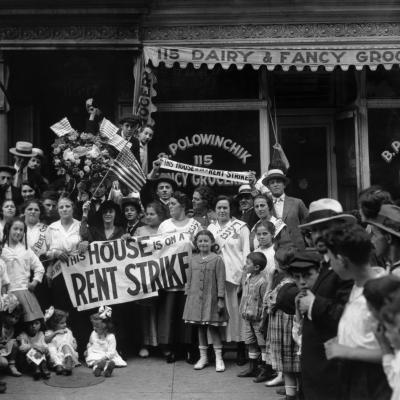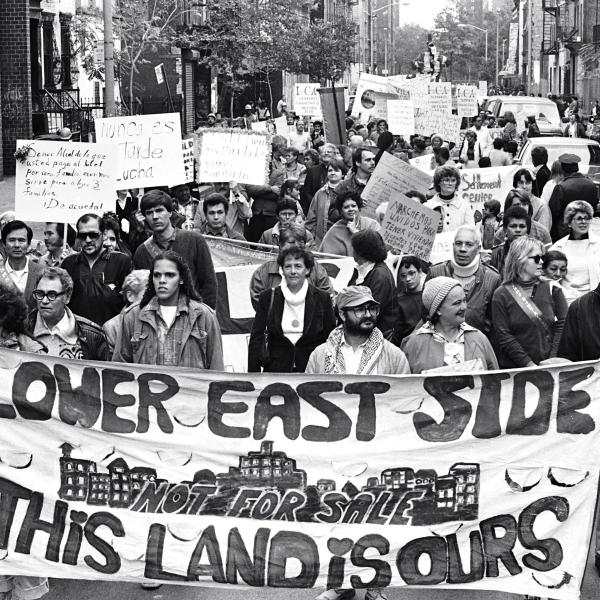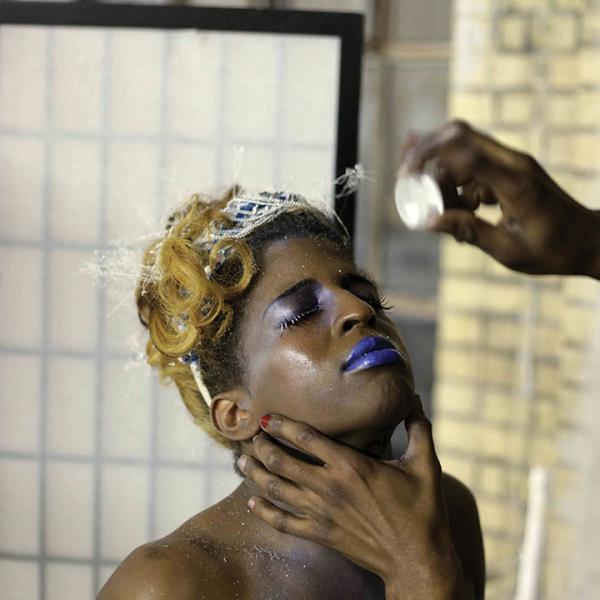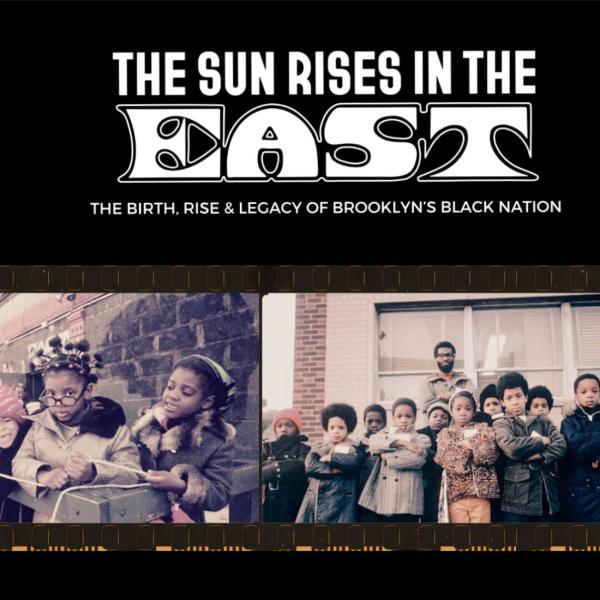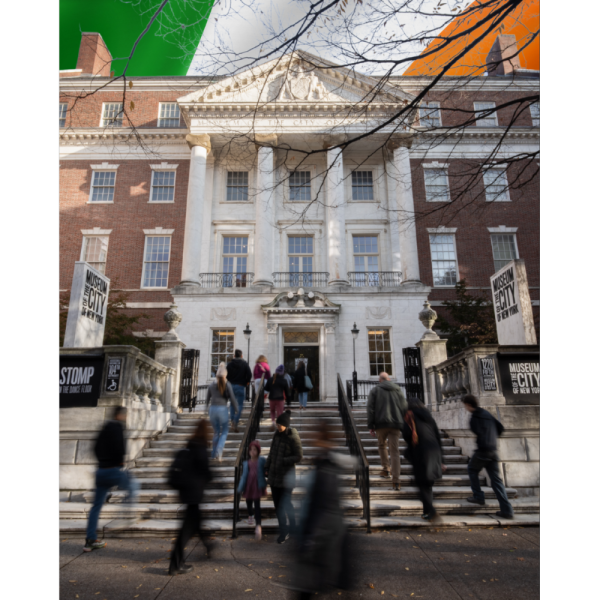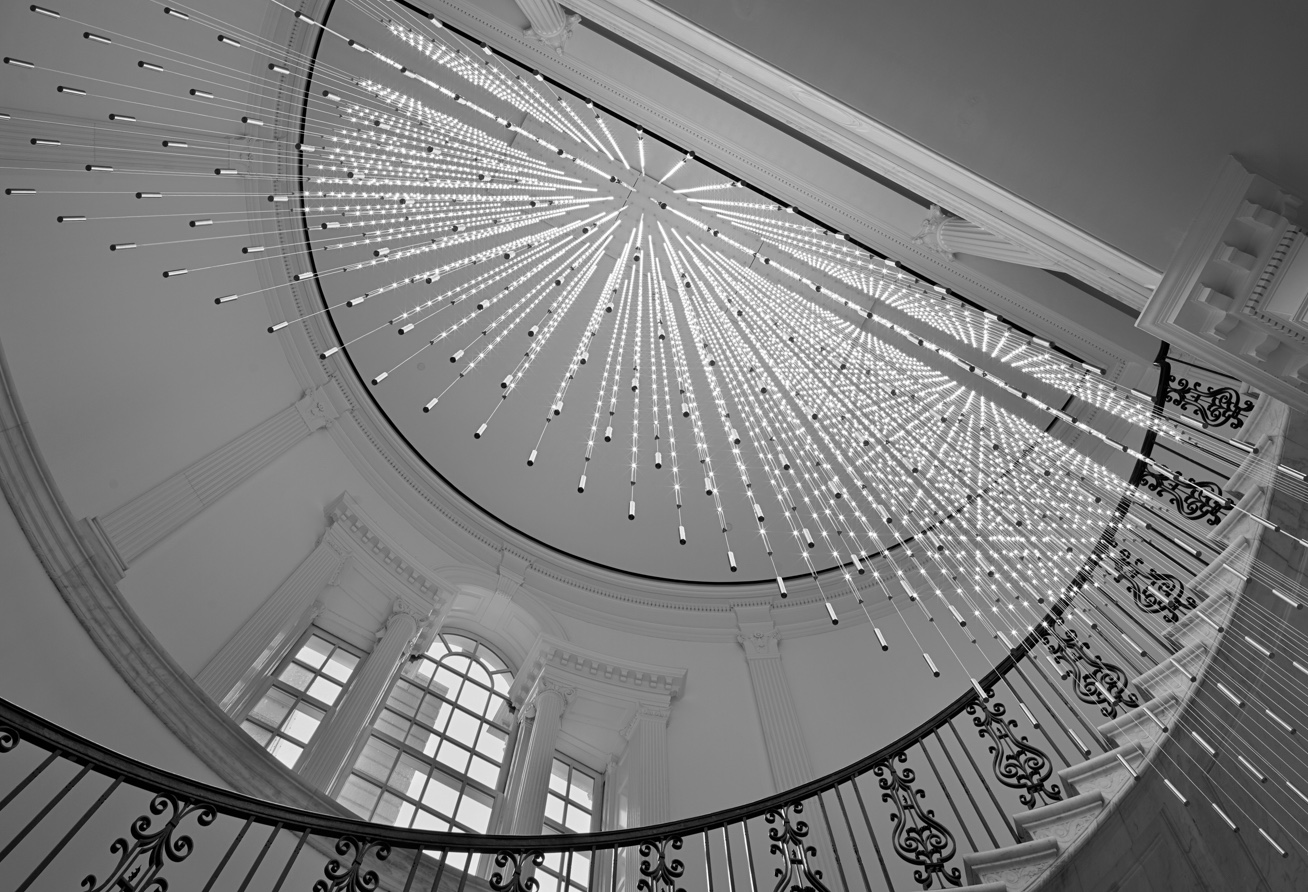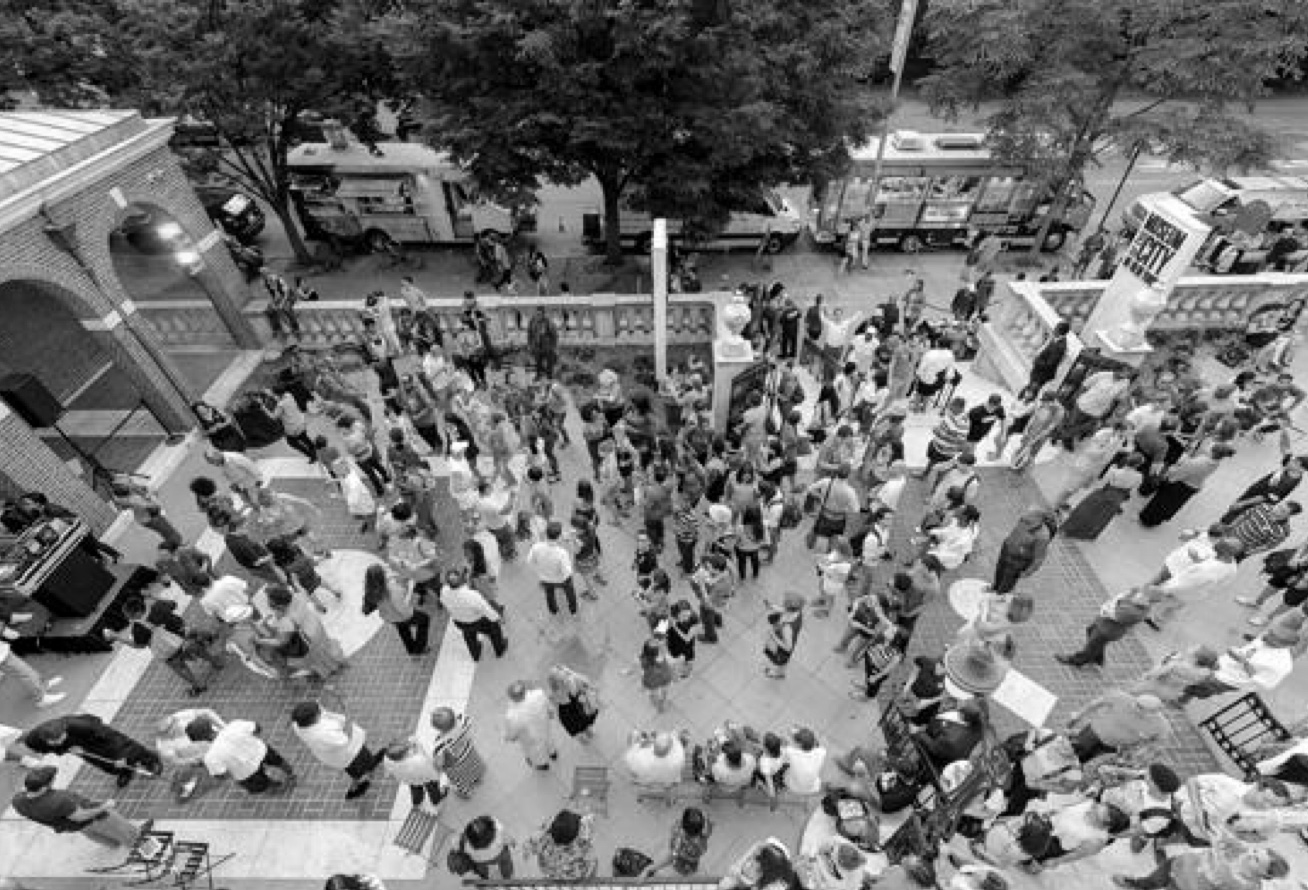Activists on Screen: Black Documentary Shorts
This event has passed.
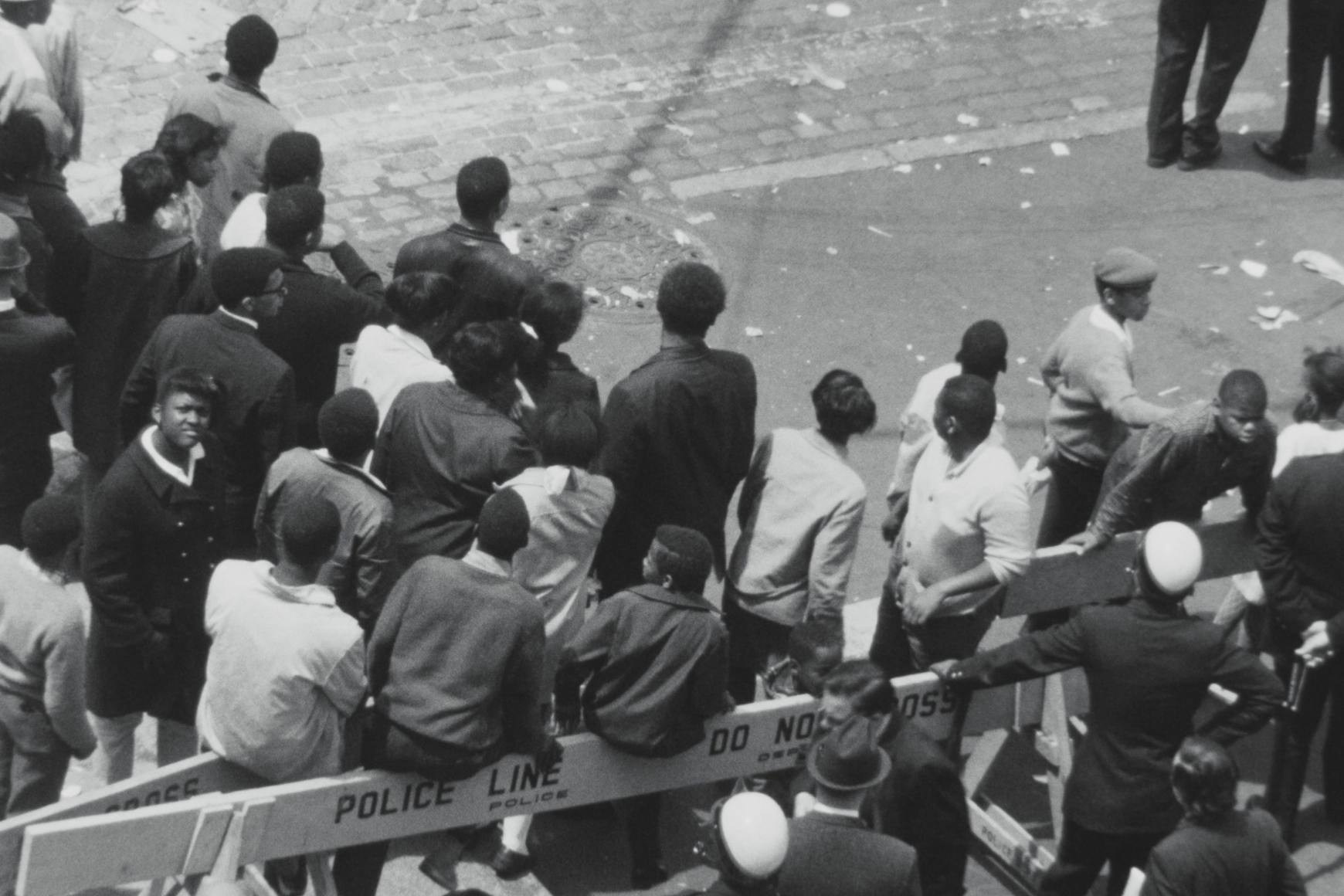
Join scholars and filmmakers at the Museum during Black History month for a series of short films and post-screening discussion. Films explore topics such as unemployment, police surveillance, struggles for safety, and Black joy in spaces across the city. This program includes rare 16 mm films as well as digital projections. Selected shorts include Black Faces (1970), We Need A J-O-B So We Can E-A-T, Kameron Neal's Down The Barrel (of a Lens) (2023), and Zkonqu's RADIANT (2024).
A conversation with artist Kameron Neal and scholar Johanna Fernández moderated by Kazembe Balagun follows the screenings.
About the films:
Black Faces (1970) is a collectively created short film made by the Studio Museum in Harlem. It is a is a montage of faces from the Harlem community. All of the faces, young, old, pretty, or ugly, carry dignity and aspects of beauty.
Down the Barrel (of a Lens) (Kameron Neal, 2023):
What does it mean to be seen and documented in public space without your consent? Kameron Neal, Public Artist in Residence with NYC’s Department of Records, explores this all-too-relevant concern with Down the Barrel (of a Lens), a film of charged imagery culled from the NYPD’s declassified surveillance film collections from 1960 to 1980. Each scene captures the moment when civilian targets realize they are being taped by a 16mm police camera and choose to stare back at their watcher. Down the Barrel (of a Lens) is an empowering and chilling collection of historical portraiture that poses questions about policing, acceptable intrusion, personal privacy, and quiet protest. Originally conceived as a two-channel video and audio installation, this screening will feature a single-channel version of the film.
RADIANT (Zkonqu, 2024) is a short experimental film by interdisciplinary artist Zkonqu that juxtaposes archival footage with more recent video concerning police violence, functioning itself as a siren for the presence of police in Black communities past and present.
We Need A J-O-B So We Can E-A-T (Carolyn Kresky, 1978) is a document on the conditions of poverty, education, and the right to public services towards employment for Black families living in 1970s-era Bedford-Stuyvesant, Brooklyn. Written, produced and directed by Carolyn Kresky. Narrated by John Martin. Filmed by Sidney Reichman. This authentic capture is rarely screened and is on loan from the personal collection of Jake Perlin.
Activists on Screen is a new documentary film series examining NYC’s longstanding engagement with social activism, inspired by the Museum's centennial and our ongoing exhibition Activist New York. The series is programmed by Sarah Seidman, MCNY's Puffin Foundation Curator of Social Activism, and film curator Melissa Lyde, founder and creator of Alfreda's Cinema.
About the Speakers:
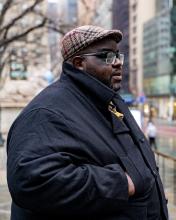
Kazembe Balagun is an internationally-presenting public speaker, writer, and activist originally from Harlem, New York who employs cultural history as a tool for political discourse and movement building. The youngest son of Ben and Millie, Balagun inherited and experiments with the intellectual, political, and aesthetic values shaped by 20th-century crossings of varied Blacknesses in Uptown New York that continue to shape practices of meaning-making across artistic disciplines and around the world. Balagun’s writings have been published in several anthologies including Imagine: Living in a Socialist USA (Harper Collins, 2014) and Finally Got the News: The Printed Legacy of the U.S. Radical Left, 1970-1979 (Common Notions, 2017). In 2006, Balagun conducted Octavia Butler’s last interview for the radical newspaper, the Indypendent, of which he is a staff writer emeritus. He has presented at institutions including the Black Archives in Amsterdam, the Brooklyn Academy of Music, Maysles Documentary Center, and Metrograph Theater. He has worked as Director of Outreach and Education at the Brecht Forum and as a project manager with the Rosa Luxemburg Stiftung.
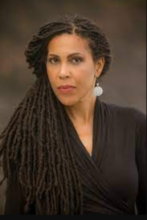
Johanna Fernández is a professor of history at Baruch College and the CUNY Graduate Center, where she teaches 20th century US history and the history of social movements. She is the author of the award-winning book The Young Lords: A Radical History (UNC Press, 2020), editor of Writing on the Wall: Selected Prison Writings of Mumia Abu-Jamal (City Lights, 2015), and co-editor with Mumia Abu-Jamal of The Roots of Mass Incarceration in the US: Locking Up Black Dissidents and Punishing the Poor (Socialism and Democracy, Routledge, 2014). She co-curated the exhibition ¡Presente! The Young Lords in New York at the Bronx Museum of the Arts, El Museo del Barrio, and Loisaida Inc. Fernández’s writing has appeared in publications including Al Jazeera, The New York Times, NPR, and The Wall Street Journal. Her awards include a New York City Book Award, a Fulbright Scholars grant to the Middle East and North Africa, and a National Endowment for the Humanities Fellowship of the Scholars-in-Residence program at the Schomburg Center for Research in Black Culture of the New York Public Library.
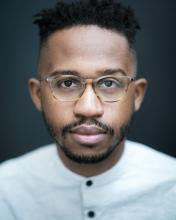
Kameron Neal is an artist and designer working in video, installation, and performance. He has received awards from the Princess Grace Foundation and NYSCA/NYFA in Digital/Electronic Arts. Kameron has also received Lucille Lortel and a Henry Hewes Design Awards for Outstanding Projection Design for his work on Ryan J. Haddad’s Dark Disabled Stories at The Public Theater and The Bushwick Starr. Kameron’s work has been seen in The New York Times, Forbes, National Geographic, Rolling Stone, HYPEBEAST and presented at a variety of institutions including Lincoln Center, BAM, Ars Nova, SohoRep, CultureHub, Digital Graffiti, New Orleans Film Festival, Ann Arbor Film Festival, Gregg Museum of Art and Design, Williams College Museum of Art and Sound Scene at the Smithsonian’s Hirshhorn Museum.
Supporters
Activist New York and its associated programs are made possible by The Puffin Foundation, Ltd.

